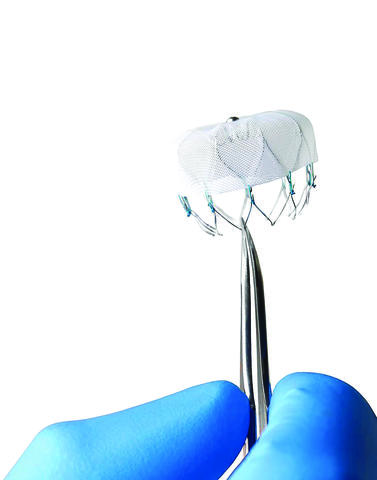St. Elizabeth’s Medical Center Implants 50th Successful Watchman Left Atrial Appendage Closure Device to Treat Atrial Fibrillation

Permanent heart implant is the only FDA-approved device for the reduction of stroke risk in patients with non-valvular atrial fibrillation
BRIGHTON, MA – Physicians at St. Elizabeth’s Medical Center recently performed the institution’s 50th implant of the WATCHMAN™ Left Atrial Appendage Closure (LAAC) Device on a patient with atrial fibrillation (AF). The hospital is one of only a few in the greater Boston area to offer the WATCHMAN device as an alternative to the lifelong use of warfarin or other blood thinners for people with AF.
St. Elizabeth’s Electrophysiologist John “Jack” Wylie, MD performed the 50th implant with his team. An estimated five million Americans are affected by AF, which is an irregular heart rhythm. People with AF have a five times greater risk of stroke than those with normal heart rhythms. The WATCHMAN device closes off an area of the heart called the left atrial appendage (LAA) to keep harmful blood clots that can form in the LAA from entering the blood stream and potentially causing a stroke. By closing off the LAA, the risk of stroke may be reduced and, over time, most patients are able to stop taking warfarin or other blood thinners.
“The WATCHMAN device is a novel alternative for patients with non-valvular AF at risk for a stroke, especially those with a compelling reason not to be on blood thinners,” said Dr. Wylie. “I’m proud to have performed 50 implants of this device at St. Elizabeth’s, as it offers patients potentially life-changing stroke risk treatment.”
The WATCHMAN device has been implanted in more than 50,000 patients worldwide and is done in a one-time procedure. It is a permanent device that doesn’t have to be replaced and can’t be seen outside the body. The procedure is done under general anesthesia and takes about an hour. Patients commonly stay in the hospital overnight and leave the next day.
“People with atrial fibrillation are at significant risk of stroke, which can have a serious emotional and psychological effect on them,” said Mellanie True Hills, founder and chief executive officer, StopAfib.org, a patient advocacy organization for those living with Afib. “Thus it is important for them to be aware of and understand recent medical advances and treatments that can help with stroke prevention.”
About Atrial Fibrillation: Atrial fibrillation (AF) is a heart condition where the upper chambers of the heart (atrium) beat too fast and with irregular rhythm (fibrillation). AF is the most common cardiac arrhythmia, currently affecting more than five million Americans. Twenty percent of all strokes occur in patients with AF, and AF-related strokes are more frequently fatal and disabling. The most common treatment to reduce stroke risk in patients with AF is blood-thinning warfarin medication or other anticoagulants such as Pradaxa, Eliquis and Xarelto. Despite their proven efficacy, long term blood thinning medication is not well-tolerated by some patients and carries an increased risk for bleeding complications. Nearly half of AF patients eligible for blood thinners are currently untreated due to tolerance and adherence issues.
For more information, contact the St. Elizabeth’s Medical Center Electrophysiology Service at (617) 789-3187 or visit www.semc.org/cardiac.
###
About St. Elizabeth’s Medical Center
St. Elizabeth’s Medical Center is a major academic medical center affiliated with Tufts University School of Medicine. Areas of medical excellence include vascular and endovascular surgery, cardiology, neurosciences, general and robotic surgery, bariatric surgery, women’s health, high-risk obstetrics, bone and joint health, hematology/oncology, pulmonary medicine and emergency medicine. St. Elizabeth’s is a member of Steward Health Care. Visit St. Elizabeth’s online at www.semc.org.
